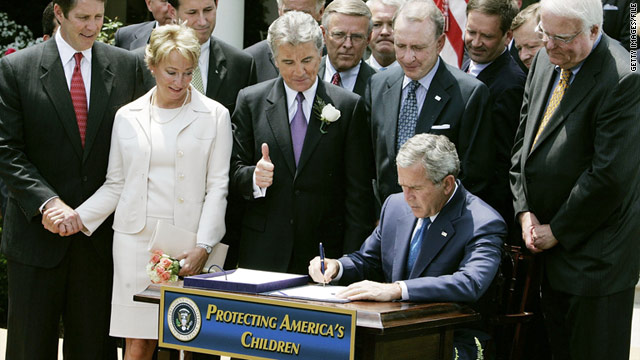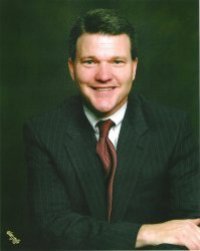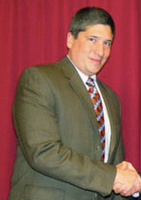Eddie Leroy Anderson of Craigmont, Idaho, is a retired logger, a former science teacher and now a federal criminal thanks to his arrowhead-collecting hobby.
With the growing number of federal criminal statutes, it's become increasingly easy for Americans to end up on the wrong side of the law. Kelsey Hubbard talks with WSJ's Gary Fields about the impact.
In 2009, Mr. Anderson loaned his son some tools to dig for arrowheads near a favorite campground of theirs.
Unfortunately, they were on federal land. Authorities "notified me to get a lawyer and a damn good one," Mr. Anderson recalls.
There is no evidence the Andersons intended to break the law, or even knew the law existed, according to court records and interviews. But the law, the Archaeological Resources Protection Act of 1979, doesn't require criminal intent and makes it a felony punishable by up to two years in prison to attempt to take artifacts off federal land without a permit.
Faced with that reality, the two men, who didn't find arrowheads that day, pleaded guilty to a misdemeanor and got a year's probation and a $1,500 penalty each. "We kind of wonder why it got took to the level that it did," says Mr. Anderson, 68 years old.
Wendy Olson, the U.S. Attorney for Idaho, said the men were on an archeological site that was 13,000 years old. "Folks do need to pay attention to where they are," she said.
The Andersons are two of the hundreds of thousands of Americans to be charged and convicted in recent decades under federal criminal laws—as opposed to state or local laws—as the federal justice system has dramatically expanded its authority and reach.
As federal criminal statutes have ballooned, it has become increasingly easy for Americans to end up on the wrong side of the law. Many of the new federal laws also set a lower bar for conviction than in the past: Prosecutors don't necessarily need to show that the defendant had criminal intent.
On the Wrong Side of the Law
See a breakdown of the rise of federal sentences by the type of offense.
An Act for the Punishment of Crimes
U.S. National Archives, Washington, D.C.
The first federal criminal statute, signed into law on April 30, 1790, includes only a handful of offenses: treason, counterfeiting, piracy, and murder, maiming and robbery in federal jurisdictions. It fit on to two sheets of parchment, each around 27 inches by 22 inches, and was handwritten in iron gall ink.
The law is currently kept in a vault in the National Archives in Washington, D.C. See a digital copy, or
click here to read the text.
.
These factors are contributing to some unusual applications of justice. Father-and-son arrowhead lovers can't argue they made an innocent mistake. A lobster importer is convicted in the U.S. for violating a Honduran law that the Honduran government disavowed. A Pennsylvanian who injured her husband's lover doesn't face state criminal charges—instead, she faces federal charges tied to an international arms-control treaty.
The U.S. Constitution mentions three federal crimes by citizens: treason, piracy and counterfeiting. By the turn of the 20th century, the number of criminal statutes numbered in the dozens. Today, there are an estimated 4,500 crimes in federal statutes, according to a 2008 study by retired Louisiana State University law professor John Baker.
There are also thousands of regulations that carry criminal penalties. Some laws are so complex, scholars debate whether they represent one offense, or scores of offenses.
Counting them is impossible. The Justice Department spent two years trying in the 1980s, but produced only an estimate: 3,000 federal criminal offenses.
The American Bar Association tried in the late 1990s, but concluded only that the number was likely much higher than 3,000. The ABA's report said "the amount of individual citizen behavior now potentially subject to federal criminal control has increased in astonishing proportions in the last few decades."
A Justice spokeswoman said there was no quantifiable number. Criminal statutes are sprinkled throughout some 27,000 pages of the federal code.
There are many reasons for the rising tide of laws. It's partly due to lawmakers responding to hot-button issues—environmental messes, financial machinations, child kidnappings, consumer protection—with calls for federal criminal penalties. Federal regulations can also carry the force of federal criminal law, adding to the legal complexity.
With the growing number of federal crimes, the number of people sentenced to federal prison has risen nearly threefold over the past 30 years to 83,000 annually. The U.S. population grew only about 36% in that period. The total federal prison population, over 200,000, grew more than eightfold—twice the growth rate of the state prison population, now at 2 million, according the federal Bureau of Justice Statistics
Tougher federal drug laws account for about 30% of people sentenced, a decline from over 40% two decades ago. The proportion of people sentenced for most other crimes, such as firearms possession, fraud and other non-violent offenses, has doubled in the past 20 years.
The growth in federal law has produced benefits. Federal legislation was indispensable in winning civil rights for African-Americans. Some of the new laws, including those tackling political corruption and violent crimes, are relatively noncontroversial and address significant problems. Plenty of convicts deserve the punishment they get.
Roscoe Howard, the former U.S. Attorney for the District of Columbia, argues that the system "isn't broken." Congress, he says, took its cue over the decades from a public less tolerant of certain behaviors. Current law provides a range of options to protect society, he says. "It would be horrible if they started repealing laws and taking those options away."
Still, federal criminal laws can be controversial. Some duplicate existing state criminal laws, and others address matters that might better be handled as civil rather than criminal matters.
Some federal laws appear picayune. Unauthorized use of the Smokey Bear image could land an offender in prison. So can unauthorized use of the slogan "Give a Hoot, Don't Pollute."
The spread of federal statues has opponents on both sides of the aisle, though for different reasons. For Republicans, the issue is partly about federal intrusions into areas historically handled by states. For Democrats, the concerns include the often lengthy prison sentences that federal convictions now produce.
Those expressing concerns include the American Civil Liberties Union and Edwin Meese III, former attorney general under President Ronald Reagan. Mr. Meese, now with the conservative Heritage Foundation, argues Americans are increasingly vulnerable to being "convicted for doing something they never suspected was illegal."
"Most people think criminal law is for bad people," says Timothy Lynch of Cato Institute, a libertarian think tank. People don't realize "they're one misstep away from the nightmare of a federal indictment."
Associated Press Driver Bobby Unser got a criminal record after being lost in a blizzard.
Last September, retired race-car champion Bobby Unser told a congressional hearing about his 1996 misdemeanor conviction for accidentally driving a snowmobile onto protected federal land, violating the Wilderness Act, while lost in a snowstorm. Though the judge gave him only a $75 fine, the 77-year-old racing legend got a criminal record.
Mr. Unser says he was charged after he went to authorities for help finding his abandoned snowmobile. "The criminal doesn't usually call the police for help," he says.
A Justice Department spokesman cited the age of the case in declining to comment. The U.S. Attorney at the time said he didn't remember the case.
Some of these new federal statutes don't require prosecutors to prove criminal intent, eroding a bedrock principle in English and American law. The absence of this provision, known as
mens rea, makes prosecution easier, critics argue.
A study last year by the Heritage Foundation and the National Association of Criminal Defense Lawyers analyzed scores of proposed and enacted new laws for nonviolent crimes in the 109th Congress of 2005 and 2006. It found of the 36 new crimes created, a quarter had no
mens rea requirement and nearly 40% more had only a "weak" one.
Associated Press Justice Anthony Kennedy, pictured, recently voiced concern over a statute.
Some jurists are disturbed by the diminished requirement to show criminal intent in order to convict. In a 1998 decision, federal appellate judge Richard Posner, a noted conservative, attacked a 1994 federal law under which an Illinois man went to prison for three years for possessing guns while under a state restraining order taken out by his estranged wife. He possessed the guns otherwise legally, they posed no immediate threat to the spouse, and the restraining order didn't mention any weapons bar.
"Congress created, and the Department of Justice sprang, a trap" on a defendant who "could not have suspected" he was committing a crime, Judge Posner wrote.
Another area of concern among some jurists is the criminalization of issues that they consider more appropriate to civil lawsuits. In December, the Ninth Circuit Court of Appeals, which is considered liberal, overturned the fraud conviction of a software-company executive accused of helping to issue false financial statements. The government tried "to stretch criminal law beyond its proper bounds," wrote the Circuit's chief judge, Alex Kozinski.
Civil law, he said, is a better tool to judge "gray area" conduct—actions that might, or might not, be illegal. Criminal law, he said, "should clearly separate conduct that is criminal from conduct that is legal."
Occasionally, Americans are going to prison in the U.S. for violating the laws and rules of other countries. Last year, Abner Schoenwetter finished 69 months in federal prison for conspiracy and smuggling. His conviction was related to importing the wrong kinds of lobsters and bulk packaging them in plastic, rather than separately in boxes, in violation of Honduran laws.
According to court records and interviews, Mr. Schoenwetter had been importing lobsters from Honduras since the mid-1980s. In early 1999, federal officials seized a 70,000-pound shipment after a tip that the load violated a Honduran statute setting a minimum size on lobsters that could be caught. Such a shipment, in turn, violated a U.S. law, the Lacey Act, which makes it a felony to import fish or wildlife if it breaks another country's laws. Roughly 2% of the seized shipment was clearly undersized, and records indicated other shipments carried much higher percentages, federal officials said.
In an interview, Mr. Schoenwetter, 65 years old, said he and other buyers routinely accepted a percentage of undersized lobsters since the deliveries from the fishermen inevitably included smaller ones. He also said he didn't believe bringing in some undersized lobsters was illegal, noting that previous shipments had routinely passed through U.S. Customs.
After conviction, Mr. Schoenwetter and three co-defendants appealed, and the Honduran government filed a brief on their behalf saying that Honduran courts had invalidated the undersized-lobster law. By a two-to-one vote, however, a federal appeals panel found the Honduran law valid at the time of the trial and upheld the convictions.
The dissenting jurist, Judge Peter Fay, wrote: "I think we would be shocked should the tables be reversed and a foreign nation simply ignored one of our court rulings."
Robert Kern, a 62-year-old Virginia hunting-trip organizer, was also prosecuted in the U.S. for allegedly breaking the law of another country. Instead of lobsters from Honduras, Mr. Kern's troubles stemmed from moose from Russia.
He faced a 2008 Lacey Act prosecution for allegedly violating Russian law after some of his clients shot game from a helicopter in that country. In the end, he was acquitted after a Russian official testified the hunters had an exemption from the helicopter hunting ban. Still, legal bills totaling more than $860,000 essentially wiped out his retirement savings, Mr. Kern says.
Justice Department officials declined to comment on Messrs. Kern and Schoenwetter.
Charlie Litchfield for The Wall Street Journal Would-be inventor and felon Kirster Evertson: 'If I had abandoned the chemicals, why would I have told the investigators about them?'
One area of expansion has been environmental crimes. Since its inception in 1970, the Environmental Protection Agency has grown to enforce some 25,000 pages of federal regulations, equivalent to about 15% of the entire body of federal rules. Many of the EPA rules carry potential criminal penalties. Krister Evertson, a would-be inventor, recently spent 15 months in prison for environmental crimes where there was no evidence he harmed anyone, or intended to.
In May 2004 he was arrested near Wasilla, Alaska, and charged with illegally shipping sodium metal, a potentially flammable material, without proper packaging or labeling.
He told federal authorities he had been in Idaho working to develop a better hydrogen fuel cell but had run out of money. He had moved some sodium and other chemicals to a storage site near his workshop in Salmon, Idaho, before traveling back to his hometown of Wasilla to raise money by gold-mining.
Mr. Evertson said he believed he had shipped the sodium legally. A jury acquitted him in January 2006.
However, Idaho prosecutors, using information Mr. Evertson provided to federal authorities in Alaska, charged him with violating the Resource Conservation and Recovery Act, a 1976 federal law that regulates handling of toxic waste. The government contended Mr. Evertson had told federal investigators he had abandoned the chemicals. It also said the landlord of the Idaho storage site claimed he was owed back rent and couldn't find the inventor—allegations Mr. Evertson disputed.
Once the government deemed the chemicals "abandoned," they became "waste" and subject to RCRA. He was charged under a separate federal law with illegally moving the chemicals about a half-mile to the storage site.
"If I had abandoned the chemicals, why would I have told the investigators about them?" said Mr. Evertson in an interview. He added that he spent $100,000 on the material and always planned to resume his experiments.
Prosecutors emphasized the potential danger of having left the materials for two years. "You clean up after yourself and don't leave messes for others," one prosecutor told the jury, which convicted Mr. Evertson on three felony counts. Prosecutors said clean-up of the site cost the government $400,000. Mr. Evertson, 57, remains on probation, working as night watchman in Idaho.
In a statement, Ms. Olson, the Idaho U.S. Attorney, said that by leaving dangerous chemicals not properly attended he endangered others and caused the government to spend more than $400,000 in clean-up costs. "This office will continue to aggressively prosecute" environmental crimes, she said.
Critics contend that federal criminal law is increasingly, and unconstitutionally, impinging on the sovereignty of the states. The question recently came before the Supreme Court in the case of Carol Bond, a Pennsylvania woman who is fighting a six-year prison sentence arising out of violating a 1998 federal chemical-weapons law tied to an international arms-control treaty. The law makes it a crime for an average citizen to possess a "chemical weapon" for other than a "peaceful purpose." The statute defines such a weapon as any chemical that could harm humans or animals.
Ms. Bond's criminal case stemmed from having spread some chemicals, including an arsenic-based one, on the car, front-door handle and mailbox of a woman who had had an affair with her husband. The victim suffered a burn on her thumb.
In court filings, Ms. Bond's attorneys argued the chemical-weapons law unconstitutionally intruded into what should have been a state criminal matter. The state didn't file charges on the chemicals, but under state law she likely would have gotten a less harsh sentence, her attorneys said.
Last month, the Supreme Court unanimously ruled Ms. Bond has standing to challenge the federal law. By distributing jurisdiction among federal and state governments, the Constitution "protects the liberty of the individual from arbitrary power," Justice Anthony Kennedy wrote for the court. "When government acts in excess of its lawful powers, that liberty is at stake."
During oral arguments in the case, Justice Samuel Alito expressed concern about the law's "breadth" by laying out a hypothetical example. Simply pouring a bottle of vinegar into a bowl to kill someone's goldfish, Justice Alito said, could be "potentially punishable by life imprisonment."
—Tom McGinty and Louise Radnofsky contributed to this article.
Write to Gary Fields at
gary.fields@wsj.com and John R. Emshwiller at
john.emshwiller@wsj.com




